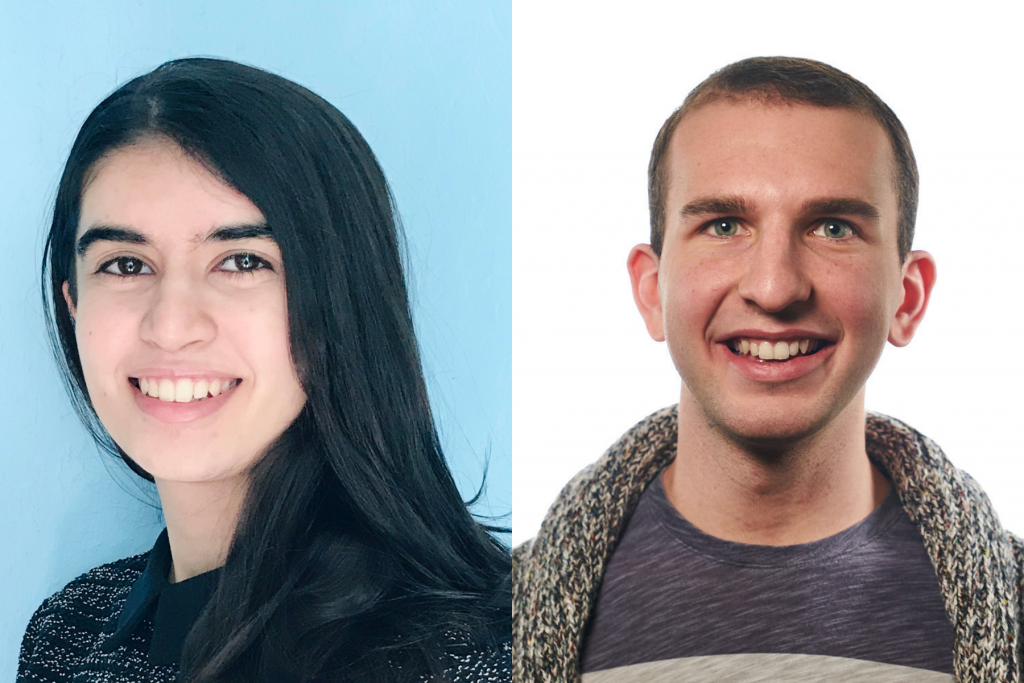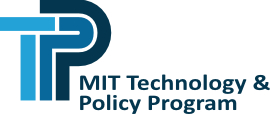
Science and policy in practice
MIT students Disha Trivedi and Ty Christoff-Tempesta both have internships this summer at the Massachusetts State House, as participants in the Summer Science and Technology Policy Fellowship hosted by the Scientific Citizenship Initiative at Harvard Medical School. Disha is a Master’s student in the Technology and Policy Program, and Ty is a PhD student in the Department of Materials Science and Engineering. TPP funds and supports MIT student participation in the fellowship. Below, Disha and Ty share some of their experiences and how it informs their research.
What is the focus of your research? What sort of knowledge and disciplines does it bring together? How will it make an impact?
Disha: My research with the MIT Superfund Research Program focuses on the impact of persistent organic pollutants on public health in the United States and the Arctic. We aim to understand the potential for non-additive, synergistic impacts of pollutants like polycyclic aromatic hydrocarbons (PAHs)—which are pollutants that arise from sources as wide-ranging as coal mining and wildfires—on predicted disease outcomes, like predicted cancer risk.
This work uses both modeled and observational data to bring together atmospheric chemistry and biological engineering. In the process, I’ve also begun attending science advisory working group meetings for the UN Economic Commission for Europe’s Convention on Long Range Transboundary Air Pollution, under which PAHs are governed internationally. In our work, we aim to better model and inform our understanding of air pollution, particularly pollution which arises from multiple sources and spreads long distances, to inform public policy outcomes.
Ty: My research focuses on developing new materials to remove heavy metal contaminants, particularly lead and arsenic, out of drinking water. The presence of heavy metals in water is both a widespread issue and a particularly hazardous one; in fact, heavy metals occupy four of the World Health Organization’s “ten chemicals of major public health concern.” We hope to develop new technologies inspired by biological systems which can miniaturize point-of-use water treatment to address these pressing crises. In the lab, this work draws on a variety of disciplines including materials science, chemistry, physics, and chemical engineering. As we think of translating our materials beyond the lab, we also have to consider how new technologies fit into existing social and institutional structures.
This summer you’re interned within the Massachusetts state government. Who are you working with and what are you doing?
Disha: This summer, I am working with the Massachusetts State Legislature’s PFAS Interagency Task Force, which is co-chaired by State Senator Julian Cyr and State Representative and Speaker Pro Tempore Kate Hogan. PFAS are human-made, industrially produced chemicals defined by their multiple organic fluorine bonds. Many chemicals within the category of PFAS are toxic, persistent in the environment, and capable of accumulating in human and animal bodies. PFAS sources range from semiconductors to cosmetics to, in certain communities, drinking water. Mark Ruffalo stars in Dark Waters, a movie based on the true story of the Ohio River Valley communities who discovered that their drinking water contained concentrated amounts of a highly toxic PFAS chemical, PFOA, which is a key ingredient in nearby Teflon production. I work with a team of legislative staff from both offices to survey the current scientific understanding of PFAS, identify knowledge gaps, locate areas for generating public awareness, and propose recommendations for holistic legislation in the PFAS space. To do so, I meet with stakeholders, survey literature, help to organize public hearings, and draft sections of the Task Force report.
Ty: I’m working this summer with Rep. Natalie Higgins, who represents Leominster, the Pioneer Plastics City and the birthplace of Johnny Appleseed. Within her office, I’ve been examining Massachusetts’s infrastructure around and reliance on single-use plastics, with a particular emphasis on the role of Leominster in transitioning towards alternatives. I have also been involved in advancing Rep. Higgins’s legislation around environmentally-friendly burial alternatives.
How does the internship connect to your current research and future plans?
Disha: PFAS and PAHs share many properties, notably persistence, bioaccumulation, and toxicity to human health. When I was interviewing with offices as part of the Scientific Citizenship Initiative’s summer fellowship, I leapt at the opportunity to potentially work with the Task Force because topically, the material is as close to my scientific research as science policy can get. I’m working on research and this fellowship in tandem, so I get to see what the scientific and legislative perspective on environmental science and policy resemble. I came to this fellowship to immerse in the experience of legislative work and get a sense of what being a legislative staffer might entail, as a possible career path to consider post-TPP.
In the process of meeting stakeholders, I’m also getting a window into the advocacy and activists, local governments, industry, and legal approaches to environmental problems. All these approaches bring a valuable perspective to the table, and in this role, I have a unique opportunity to query which I’d like to bring and speak from in the future.
Ty: This experience has been formative in recognizing the role that science plays in public policy, and the intrinsic value science has in helping the public. In regard to my current research, this internship has been incredibly helpful in learning about how technologies that we develop in labs interact with society, and the role governments play in public health. It has also been instrumental in developing skills to communicate scientific ideas to general audiences. I’m excited to build on this background in the future in pursuing opportunities that intersect science with public welfare.
If you have a Summer 2022 internship opportunity for a Technology and Policy Program student, please contact Barbara DeLaBarre.



